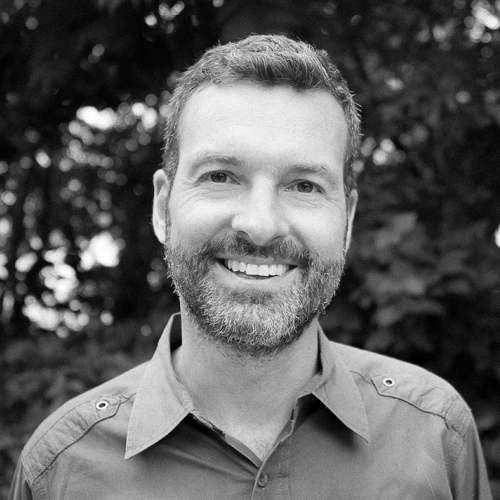
Parsons Professor David Carroll Prominently Featured in New Netflix Documentary “The Great Hack.”
In July 2017, David Carroll, MFA Design & Technology ’00, and an associate professor of media design at Parsons School of Design, brought a complaint against Cambridge Analytica, a London-based consulting giant that clandestinely collected personal data from millions of Facebook users during the 2016 presidential campaign. That lawsuit was critical in bringing about the organization’s ultimate downfall. Carroll and his story are a central part of The Great Hack, a recently released Netflix documentary that chronicles the rise and fall of Cambridge Analytica (an earlier version of the film premiered at the Sundance Film Festival last January). The film emphasizes the role Carroll and a former company employee turned whistleblower named Brittany Kaiser played in the ongoing drama.
“I’m happy with the way I was portrayed,” Carroll says about the film. “I was portrayed as the good guy in the story. I think the filmmakers created a meticulously crafted film and accomplished the impossible: to make the invisible visible.”
The Great Hoax filmmakers shot Carroll on location in his Parsons classroom, at the University Center, and at The New School’s Vera List Center and Library.
“Students will appreciate the shots taken on campus. The university has a place in the grand story,” Carroll says. “Everybody at Parsons and The New School will appreciate the way the story is told. The use of motion graphics and graphic design in the storytelling is great for Parsons students.”
The Cambridge Analytica story is complex, and Carroll believes that the media coverage highlighting the misappropriation of data on Facebook was a vast “oversimplification,” something he says that the film is rectifying.
Carroll’s involvement with Cambridge Analytica began in January 2017, when, out of what he describes as “academic curiosity,” he asked to see the personal data the company had collected on him. In March, he received a trove of information that detailed where he lived, how he voted, and where he stood on issues like immigration and gun control but did not include data explaining how the company arrived at its conclusions. After repeated attempts to get that information, he filed suit in July 2017 with the United Kingdom’s Information Commissioner’s Office (ICO), an organization that upholds information and privacy rights.
“It was so alarming. The details confirmed my worst fears,” Carroll recalls. “I knew a year later, when the story exploded, that I was right to be alarmed. The idea that voter data is being processed in another country and that political parties are exporting electoral data to foreign companies is so disturbing.”
Carroll soon learned that Cambridge Analytica executives were actually military contractors and that the people mining data on American voters were using the same techniques on the battlefield. The company was found to be deeply involved in election tampering around the world.
“It sounds like a conspiracy theory that can’t be true,” he says. “Cambridge Analytica was run by an international industry of defense contractors that committed mass data abuse. Cambridge Analytica broke the law and the porous boundaries between the defense contracting story is far more concerning than pilfered Facebook data.
By the spring of 2018, in the thick of his battle with Cambridge Analytica, Carroll was teaching a class at Parsons called Dark Data, which explored the way data is mined, sometimes for nefarious purposes. His students had the benefit of experiencing the scandal in real time as it unfolded.
“I was able to give our students advance notice of headlines that were about to break the coming week between classes,” Carroll recalls. “They could observe the public reactions to revelations they were anticipating. My work gave our students a personal connection to the story long before The Great Hack offered it to a general audience.”
That spring, Carroll publicly presented evidence to the UK Department for Digital, Culture, Media & Sport in Washington, DC; ICO issued an enforcement notice to the SCL Group (of which Cambridge Analytica was a subsidiary) to disclose; and Facebook suspended Cambridge Analytica. Two months later, the company filed for bankruptcy. Carroll ultimately failed to recover his data in court, because the British courts allowed Cambridge Analytica to liquidate, however the ICO seized their servers, and he remains hopeful that the regulator may still be able to recover his data.
Although the legal and emotional battle has taken its toll on Carroll (he estimates that he has amassed around one million dollars in legal costs, a portion of which he may owe, and pay off through a crowdfunding campaign), he has no regrets.
Carroll endorses the message of The Great Hoax about the best way to counteract the “bad actors” using social media tools.
“It illustrates that the burden is on us,” Carroll says. “It means finding buttons and checking boxes and going deep into your settings to turn things off.”
Carroll believes that the film is being released at just the right time — a year before the 2020 presidential election.
“Data privacy is the political issue of the 21st century,” he says. “It should be a bipartisan issue that unites everyone.”